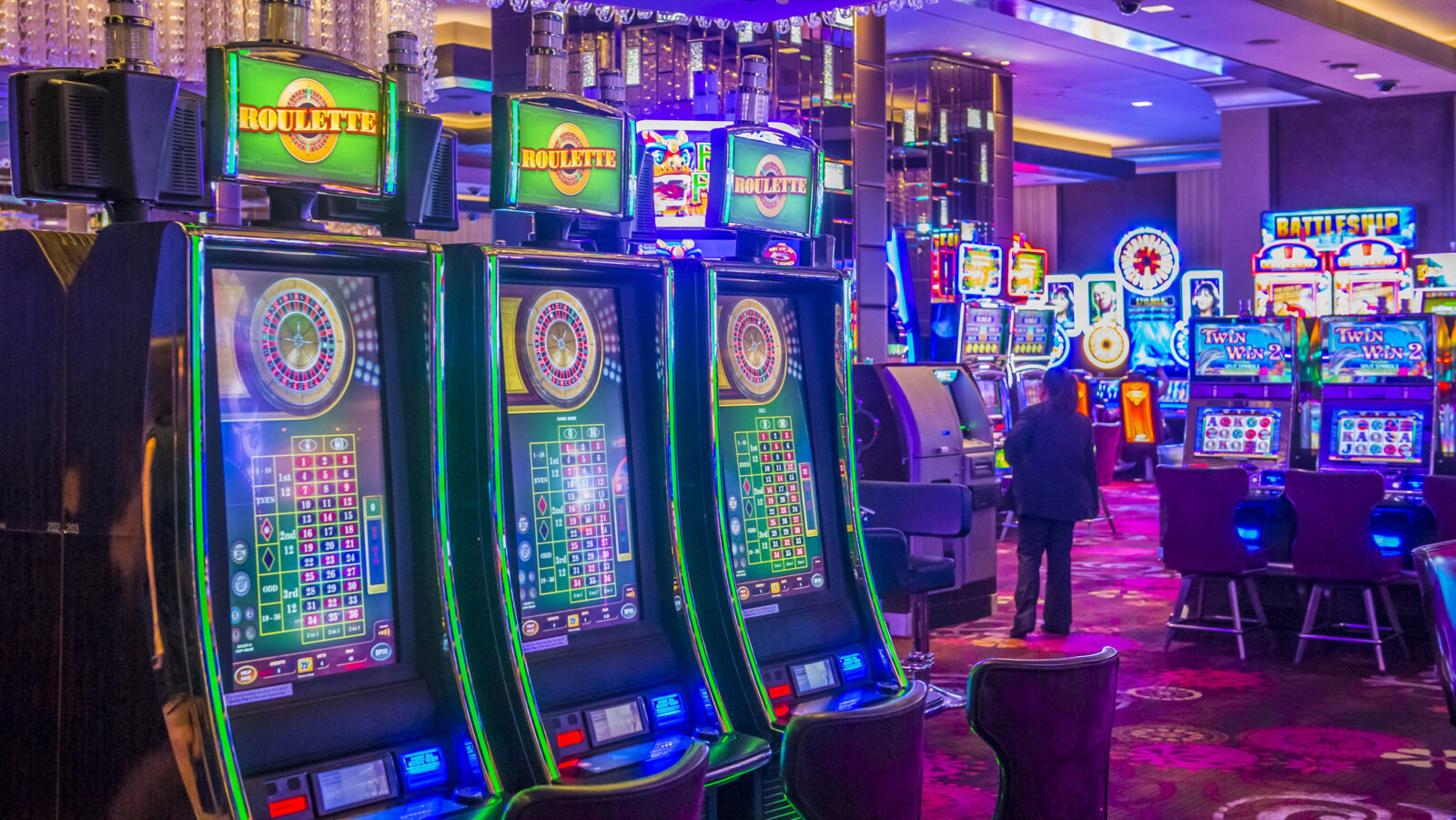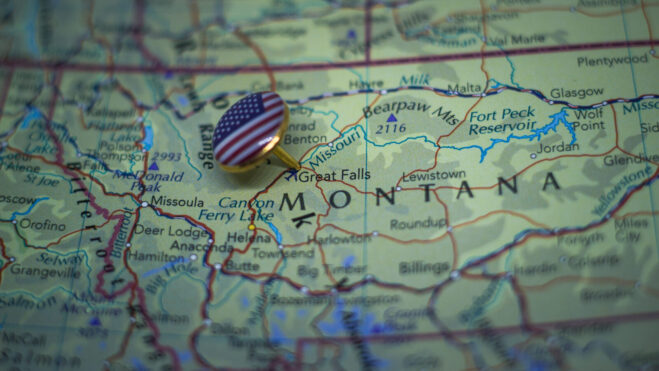Ruddock Report: It’s Quiet Out There, Plus Spotlight On Florida
f a state doesn’t need money or isn’t experiencing a decline in existing gambling revenues, there is very little impetus to legalize online casinos and any state that would have had ample opportunity to do so.
4 min

Our monthly look at the online gambling landscape includes the current legal and regulatory landscape, prospective online casino and online poker states, and significant trends to watch.
As we head into the back half of the year, one lingering question remains: Are there any legitimate online casino-poker candidates? The door is nearly, but not wholly, closed for 2024, and considering the general malaise around online casino legalization, prospects in 2025 and beyond are also looking grim.
LEGAL ONLINE GAMBLING ONLINE POKER-ONLY
New York still in play
Online casino legalization could make a return appearance in Albany, as there is a slight chance New York could resurrect its online casino legalization efforts this year during a special session.
The special session’s impetus is funding construction projects for the New York City Metropolitan Transportation Authority. Gov. Kathy Hochul is pushing for a payroll tax increase, which the legislature ignored during the 2024 session.
Online casino supporters see an opportunity. Howard Glaser, Light & Wonder’s global head of government affairs, who worked in the Gov. Andrew Cuomo administration, offered an alternative to a payroll tax: “We [the online casino industry] have a billion dollars for you, and it can start virtually tomorrow.”
As I mentioned in the Straight To The Point newsletter, “Whether online casinos get a second look or not, MTA funding provides a glimpse into how online casinos will eventually be legalized, and it starts and ends with money.”
[hfe_template id=’4095′]Look for these four indicators
Looking further down the road, how the following four questions are answered will separate the contenders from the pretenders.
- Is the culture in the state amenable to gambling?
- Does the state need money / are existing gambling revenues declining?
- Are the key stakeholders on the same page?
- Is a key lawmaker championing the issue?
Every “yes” is a good sign, but a state must answer yes to at least three and usually all four questions for it to be a true contender.
Point #1: If the legislature won’t give serious consideration to a gambling expansion bill, it doesn’t matter how desperate its finances are or how vehemently stakeholders argue for legalization.
Point #2: If a state doesn’t need money or isn’t experiencing a decline in existing gambling revenues, there is very little impetus to legalize online casinos and any state that would have had ample opportunity to do so.
Point #3: As we’ve seen in state after state if there are stakeholder divisions, legislative efforts are doomed to fail.
Point #4: Every movement needs a leader, which is doubly true when it comes to gambling legislation. Someone needs to push it forward and convince skeptical colleagues. The reverse is also true, as a single voice of opposition can thwart efforts.
A fifth, more esoteric indicator to consider
There is a fifth factor, what I’ll call the “which way the winds are blowing” factor. While the legalization of gambling may be a state-level issue with unique considerations in each locale, regional and national trends can act as a heavy thumb on the scale.
For online casino legalization, I would point to the blowback from the legalization of sports betting. Lawmakers are certainly hearing about:
- The glut of advertising.
- The betting scandals. The most recent involving Shohei Ohtani and Jontay Porter, the latter since banned from the NBA for life, but take your pick from any number of stories: Iowa and Iowa St., Alabama baseball, etc.
- The weekly stories about escalating social harms ranging from increased helpline calls to student-athlete harassment.
The candidate list
The chart below provides the outlook for online casino legalization in the coming years.
With so few realistic candidates, Casino Reports has shifted from legalization to when conversations could begin in earnest. Legalization would occur two to five years later.
As always, a dark horse could emerge at any point.
| 2025 | 2026 | 2027 |
| New Hampshire | Indiana | Colorado |
| Maine | Wyoming | Ohio |
| Maryland | Louisiana | Kentucky |
| Iowa | North Carolina | Virginia |
| New York | Illinois | Florida |
| Arkansas | Massachusetts | Georgia |
Candidate spotlight: Florida
Florida’s chances to legalize online casino gambling received a big boost from the Supreme Court’s decision not to grant cert in the West Flagler case. By not granting a writ of certiorari, the compact between Florida and the Seminole Tribe that allows the tribe to offer statewide mobile sports betting, provided the servers are located on tribal lands, remains in place. It also opens the door for the Seminoles, or a tribe in another state, to negotiate similar compacts for online casino gambling.
As the JMP Securities team wrote in an investor’s note, “Florida now has the path to get iGaming legalized… We still see skepticism around tribes’ willingness to legalize iGaming given cannibalization fears, but [it] does increase chances of iGaming in several states compared to prior to the ruling, in our view.”
Casino Reports is keeping a close eye on Florida’s and the Seminoles’ interest in online casino gambling, but thus far, there is nothing concrete to point to.
The most promising statement came from Jim Allen, Hard Rock International Chairman and CEO. In late April (pre-SCOTUS ruling), he said an affirmative ruling would open the door to renegotiating the Seminole Tribe’s compact with Florida to include online casino games.
“If the case was resolved in our favor, we would then have to reinitiate conversations with the governor’s office, the House, and the Senate,” Allen told reporter Matthew Kredell.
Trends to Watch
Trend #1: Ticking (up) Tax Rates
Recent online casino efforts have skewed toward higher tax rates.
Rhode Island instituted a split tax rate of 61% on online slots and 15% on table games—the latter must be live-dealer games.
Maryland’s failed 2024 effort imposed a 55% tax on slots and electronic table games and a 20% tax rate on live dealer games.
Given the recent actions in Illinois, where the sports betting tax rate was increased from a flat 15% rate to a graduated rate between 20% and 40%, that trend will likely continue and perhaps accelerate.
Trend #2: Online Lottery As a Stand-In?
With online casino efforts stalled on the side of the road, a possible placeholder is receiving increased attention: online lotteries.
As former New Jersey Division of Gaming Enforcement David Rebuck told EGR in a May 2024 interview, “With online lottery programs [that offer instant win games], they are nothing more than online casino gambling. Some states that don’t allow online gambling have online lottery sales, so it’s about states deciding what’s important to them to regulate.”
Instant win games have been authorized in nine states and Washington DC.
- Georgia – Subscription, Draw, and instant win games.
- Illinois – Subscription, draw, and instant win games.
- Kentucky – Subscription, Draw, and instant win games.
- Michigan – Subscription, Draw, and instant win games.
- New Hampshire – Subscription, Draw, and instant win games.
- North Carolina – Subscription and instant win games.
- Pennsylvania – Subscription, Draw, and instant win games.
- Rhode Island – Subscription, Draw, and instant win games.
- Virginia – Subscription, Draw, and instant win games.
- Washington D.C. – Subscription, Draw, and instant win games.




